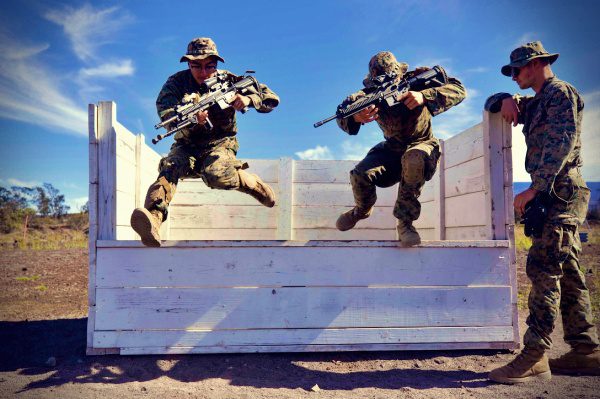Defenses: Special Defenses & Other Defenses in a Court-Martial
Call our court-martial defense lawyers today
Our firm of aggressive sex crime attorneys has the firepower to aggressively defend your charges in a military court. They are some of the best in the field of military sexual assault defense. Our hard-hitting military defense lawyers have decades of sex crime defense experience. If you or a loved one has been accused of a sexual offense such as sexual assault, then act now! Our seasoned civilian defense attorneys will aggressively defend you.
Descriptions of two different types of defenses: special defenses & other defenses:
Special defenses, the military’s equivalent to affirmative defenses, are those which deny, wholly or partially, criminal responsibility for the objective acts committed, but do not deny that those acts were committed by the accused. Other defenses, such as alibi and mistaken identity, deny commission of the culpable act or other elements of the crime. R.C.M. 916(a).
Procedures for Raising a Defense in a Court Martial
The military judge must instruct upon all special defenses raised by the evidence. The test of whether a defense is raised is whether the record contains some evidence as to each element of the defense to which the trier of fact may attach credit if it so desires. United States v. Ferguson, 15 M.J. 12 (C.M.A. 1983); United States v. Tan, 43 C.M.R. 636 (A.C.M.R. 1971); see also United States v. Jackson, 12 M.J. 163 (C.M.A. 1982); United States v. Jett, 14 M.J. 941 (A.C.M.R. 1982). Generally, the reasonableness of the evidence is irrelevant to the military judge’s determination to instruct. United States v. Thomas, 43 C.M.R. 89 (C.M.A. 1971); United States v. Symister, 19 M.J. 503 (A.F.C.M.R. 1984).
Legal Defenses Available in a Military Court-Martial
- Special Defenses & Other Defenses
- Accident Defense
- Defective causation & Intervening cause
- Duress or Coercion
- Inability and Impossibility
- Entrapment
- Self-defense
- Defense of another
- Intoxication
- Necessity or Justification
- Mistaken belief, mistake of fact, or Ignorance
- Alibi
- Voluntary abandonment
- Statute of Limitations
- Former jeopardy – Double Jeopardy
- Miscellaneous Defenses
A defense may be raised by evidence presented by the defense, the Government, or the court-martial. R.C.M. 916(b) discussion; United States v. Rose, 28 M.J. 132 (C.M.A. 1989).
In deciding whether the defense is raised, the military judge is not to judge credibility or prejudge the evidence and preclude its introduction before the court members. United States v. Tulin, 14 M.J. 695 (N.M.C.M.R. 1982).
A defense is not raised, however, if it is wholly incredible or unworthy of belief. United States v. Brown, 19 C.M.R. 363 (C.M.A. 1955); United States v. Franklin, 4 M.J. 635 (A.F.C.M.R. 1977).
Appellate military courts are very generous in finding that a defense has been raised. The court in United States v. Goins, 37 C.M.R. 396 (C.M.A. 1967) held, self-defense raised against charge of assault with intent to commit rape. Any doubt whether the evidence is sufficient to require an instruction should be resolved in favor of the accused. United States v. Steinruck, 11 M.J. 322 (C.M.A. 1981); United States v. Jenkins, 59 M.J. 893 (A. Ct. Crim. App. 2004).
In a bench trial, the impact of the raised defense is resolved by the military judge, sub silentio, in reaching a determination on the merits.
Who Holds the Burden of Proof When Raising Defenses in Military Court?
Except for the defense of lack of mental responsibility and the defense of mistake of fact as to age as described in pt. IV, paragraph 45c(2) in a prosecution of carnal knowledge, the prosecution shall have the burden of proving beyond a reasonable doubt that the defense did not exist. The accused has the burden of proving the defense of lack of mental responsibility by clear and convincing evidence, and has the burden of proving mistake of fact as to age in a carnal knowledge prosecution by a preponderance of the evidence. R.C.M. 916(b).
If a Defense is Raised During a Guilty Plea, the Judge Must Advise the Accused
If in the course of a guilty plea trial, the accused’s comments or any other evidence raises a defense, the military judge must explain the elements of the defense to the accused. See generally UCMJ art. 45(a). The accused’s comments raising the defense need not be credible. United States v. Lee, 16 M.J. 278 (C.M.A. 1983). Subsequently, if the accused does not negate the defense or other evidence belies the accused’s negation of the defense, the military judge must withdraw the guilty plea, enter a plea of not guilty for the accused, and proceed to trial on the merits. United States v. Jemmings, 1 M.J. 414 (C.M.A. 1976).
When Defenses are Raised, the Judge Must Instruct the Jury
In a members trial, the military judge must instruct the members, sua sponte, regarding all special defenses raised by the evidence. United States v. Williams, 21 M.J. 360 (C.M.A. 1986); United States v. Sawyer, 4 M.J. 64 (C.M.A. 1977); United States v. Graves, 1 M.J. 50 (C.M.A. 1975); R.C.M. 920(e)(3).
In instructing a military jury on a defense, the judge is under no obligation to summarize the evidence, but if he undertakes to do so, the summary must be fair and adequate. United States v. Nickoson, 35 C.M.R. 312 (C.M.A. 1965).
While the military judge must instruct upon every special defense in issue, there is no sua sponte duty to instruct upon every fact that may support a given defense. The court in United States v. Sanders, 41 M.J. 485 (C.A.A.F. 1995) held no plain error to fail to mention victim’s alleged invitation to assault.
Defenses Do Not Have to be Consistent
Generally, conflicting defenses may be raised and pursued at trial. R.C.M. 916(b) (discussion); see also United States v. Viola, 26 M.J. 822, 827-28 (A.C.M.R. 1988), aff’d 27 M.J. 456 (C.M.A. 1988); Nagle, Inconsistent Defenses in Criminal Cases, 92 Mil. L. Rev. 77 (1981). See generally United States v. Garcia, 1 M.J. 26 (C.M.A. 1975) (alibi and entrapment); United States v. Walker, 45 C.M.R. 150 (C.M.A. 1972) (lack of mental responsibility and self-defense); United States v. Lincoln, 38 C.M.R. 128 (C.M.A. 1967) (accident and self-defense); United States v. Snyder, 21 C.M.R. 14 (C.M.A. 1956) (heat of passion/voluntary manslaughter and self-defense); United States v. Ravine, 11 M.J. 325 (C.M.A. 1981) (entrapment and agency).
The defense of self-defense is eviscerated by the defendant’s testimony that he did not inflict the injury, regardless of what other evidence might show. United States v. Ducksworth, 33 C.M.R. 47 (C.M.A. 1963); United States v. Bellamy, 47 C.M.R. 319 (A.C.M.R. 1973). The court in United States v. Crabtree, 32 C.M.R. 652 (A.B.R. 1962) held, both duress and denial may not be raised.
Burden of Proof
The accused has the burden of proving the defense of lack of mental responsibility by clear and convincing evidence. UCMJ Art. 50a(b); R.C.M. 916(b).
Mistake of fact as to age of victim of carnal knowledge.
In a carnal knowledge or statutory rape case, mistake of fact may be raised as a defense. The accused has the burden of proving this defense by a preponderence of the evidence. The mistake must be both honest and reasonable. UCMJ Art. 120(d). Cf. United States v. Strode, 43 M.J. 29 (1995) (holding honest and reasonable mistake of fact as to age of victim of indecent acts with child may be a defense if acts would otherwise be lawful if victim was over age 16).
In regards to all other defenses, if a defense is raised, the prosecution then has the burden of proving beyond a reasonable doubt that the defense does not exist. R.C.M. 916(b); United States v. Verdi, 5 M.J. 330 (C.M.A. 1978).
A Special Defense is the military’s equivalent to an affirmative defense. It is a justification for the accused having committed the crime. It differs from other defenses because the defendant admits that he or she did, in fact, break the law. The accused asserts that he had a good reason for having done so, and therefore should be excused from all criminal liability.
Other defenses
Unlike Special Defenses, with “other defenses,” such as alibi and mistaken identity, the accused denies commission of the crime. R.C.M. 916(a).
- Constitutional Violations
- Innocence
- Alibi
- Insanity
- Self-Defense
- Defense-of-Others
- Defense-of-Property
- Involuntary Intoxication


